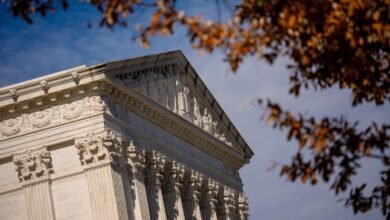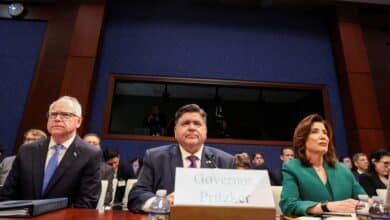Consumer confidence worsened slightly in August

The consumer’s confidence worsened slightly in August, erasing some profits of the previous month and resuming a downward trend suffered at the beginning of 2025, the Conference Board said Tuesday.
The sour of the attitudes of the buyers followed a report of weak jobs and a set of new radical tariffs issued by President Donald Trump. An inflation report of this month lower than expected facilitated some concerns about significant price increases induced by the rate, although an underlying inflation measure increased.
The consumer confidence index decreased 1.3 points to 97.4 in August, said the conference board. The figure came higher than economists expected. The index has been around the same level in the last three months.
Consumer spending, which represents approximately two thirds of the economic activity of the United States, is a key Checkther for the perspective of the nation’s economy.
The measure of consumer confidence came hours after Trump moved to say goodbye to the governor of the Federal Reserve, Lisa Cook, claiming that he had committed mortgage fraud.
In a statement to ABC News, Cook said Trump “has no authority to say goodbye. Cook said he would not resign, but promised to “continue carrying out my duties to help the US economy.”
The Fed is an independent agency established by Congress. The Federal Law allows the president to eliminate a member of the Fed Board for “cause”, although there is no precedent for such aiming.
Some recent indicators have suggested the beginning of an economic slowdown. A report on the Gross Domestic Product at the end of last month indicated an average annualized growth of 1.2% in the first half of 2025, well below the growth of 2.5% last year.

People buy from a retail store in New York, August 12, 2025.
Michael Nagle/Xinhua through Getty Images
A job report published by the US Labor Statistics Office on August 1 revealed an acute labor cooling.
Even so, some facets of the economy have proven to be resistant. The general inflation rate is 2.7%, below the rate of 3% in January, before Trump assumed the position.
The United States has greatly avoided the type of generalized employment losses that often accompany a recession. Consumer spending increased more during the three months that end in June. Corporate profits have remained robust.
The president of the Federal Reserve, Jerome Powell, said last week that the Central Bank faces a “challenging situation” as a deceleration of the hiring coincides with the price increases driven by the rate, exerting pressure on both sides of the double mission of the Fed to maximize employment and control inflation.
Powell said the Fed “would proceed with care”, but hinted at the possibility of an interest rate cut, saying “the changing balance of risks can justify adjusting our policy position.”





